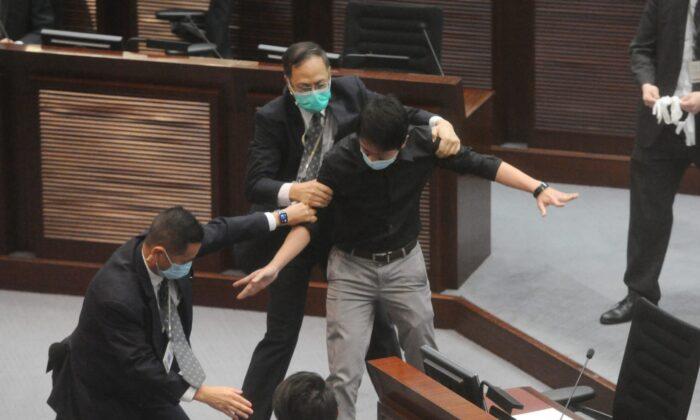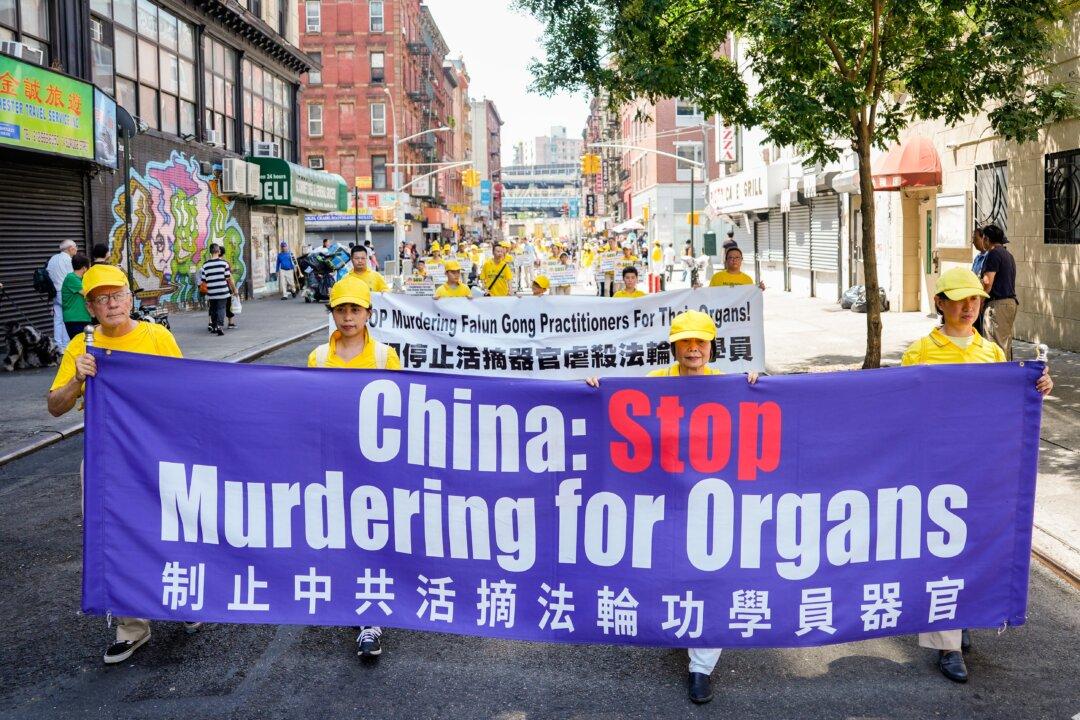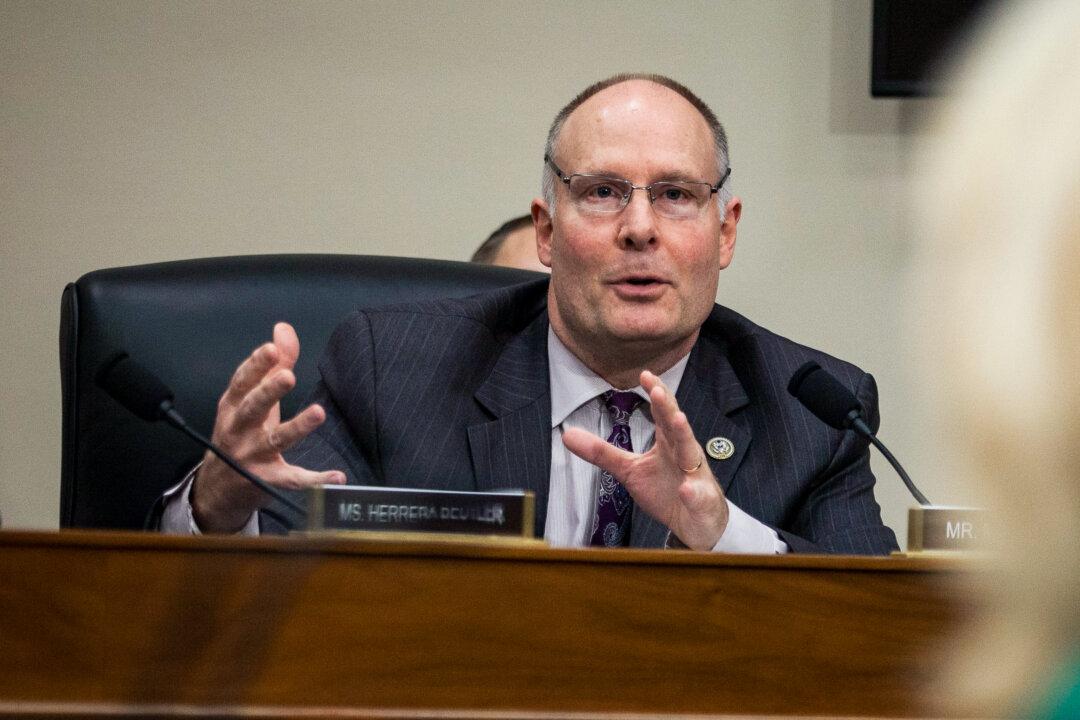In Hong Kong, a controversial national anthem bill from the pro-Beijing government has been passed after its third reading at the local legislative council (LegCo) on June 4 despite strong objection from opposition lawmakers.
The bill was passed after a vote with 41 in favor and one against. Most of the opposition lawmakers of the pro-democracy camp boycotted the vote.
Some pro-democracy lawmakers were shouting “procedural problems” while LegCo President Andrew Leung pushed forward the vote.
Secretary for Constitutional and Mainland Affairs Erick Tsang, speaking to the press after the vote, said the bill will be published in the gazette on June 12.
However, once law, it is expected to face constitutional challenges in courts, such as reviewing the language of the bill.
Prior to the final vote, lawmakers from the pro-Beijing camp voted down 21 amendments to the national anthem bill put forth by the pro-democracy lawmakers. Among the amendments were proposals to lower the penalty if found guilty and shorten the time period that local authorities will have to bring a case against an offender.
Additionally, the bill requires that students in local primary and secondary schools be taught the history of the Chinese national anthem, as well as the Chinese Communist Party’s “etiquette for playing and singing the national anthem.”
Before the vote, Wu Chi-wai, chairman of Hong Kong’s Democratic Party, said the bill was counterproductive in asking people to respect the national anthem.
“At a deeper level, the bill is symptomatic of Beijing’s desire for ever greater control over the city of Hong Kong, producing a vicious cycle in which increasingly heavy-handed rule is rationalized in response to protests over Beijing’s already quite heavy-handed rule,” Hong Kong Watch stated.
The LegCo vote comes as people in Hong Kong are set to commemorate the victims of the 1989 Tiananmen Square Massacre later on Thursday evening, despite a police ban on an annual vigil at Victoria Park due to CCP virus concerns.
The 1989 protests, which the Chinese regime brutally suppressed in June that year, are a taboo subject in mainland China; the annual vigil in Hong Kong remains the only public commemoration event on Chinese-ruled territory.
Earlier at LegCo, Andrew Wan, a Democratic Party lawmaker, criticized local authorities for setting up barricades around Victoria Park to prevent people from entering. Wan added that the police ban and the barricades were suppression tactics, with the aim to stop people from voicing their opinions.






Friends Read Free